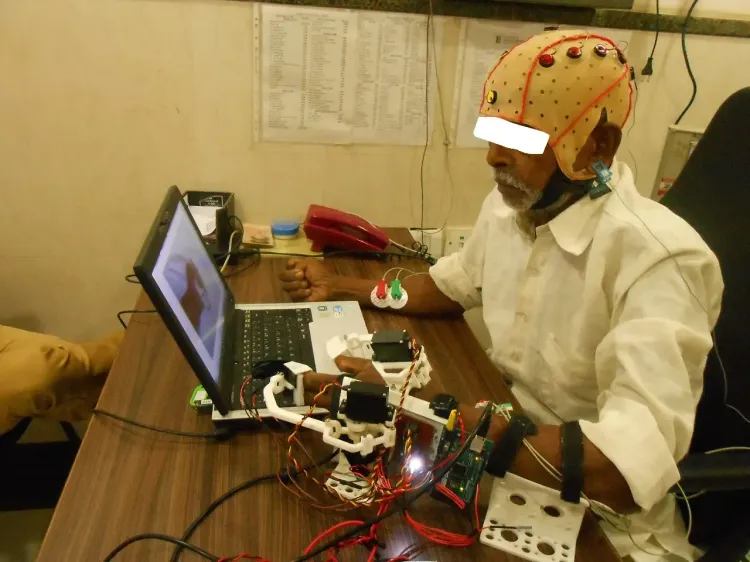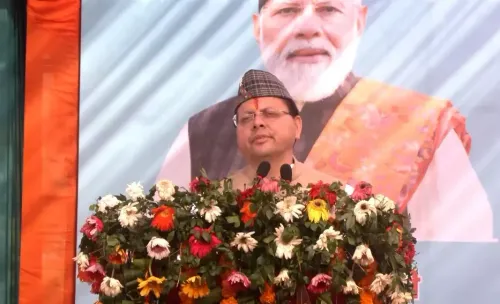IIT Kanpur Unveils Innovative Robotic Hand Exoskeleton for Stroke Recovery

Kanpur, Jan 11 (NationPress) The Indian Institute of Technology Kanpur (IITK) has unveiled a groundbreaking brain-computer interface-based robotic hand exoskeleton aimed at enhancing stroke recovery and revolutionizing post-stroke treatment by expediting rehabilitation.
This robotic hand utilizes a distinctive closed-loop control system that actively stimulates the patient’s brain during therapy.
It incorporates three vital elements: a brain-computer interface that captures EEG signals from the brain’s motor cortex to evaluate the patient’s intention to move, a robotic hand exoskeleton that executes therapeutic hand movements, and software that aligns brain signals with the exoskeleton for real-time assist-as-required force feedback, as per an IITK announcement.
This synchronized strategy guarantees ongoing brain engagement, promoting quicker and more efficient recovery.
“Recovering from a stroke is a lengthy and frequently unpredictable journey. Our device effectively merges physical therapy, brain stimulation, and visual feedback to establish a closed-loop control system that triggers brain plasticity, which is the brain's capacity to adapt its structure and functionality in response to stimuli,” stated Professor Ashish Dutta from IIT Kanpur’s Department of Mechanical Engineering.
This innovation holds particular significance for patients whose recovery has stagnated, as it provides renewed optimism for further progress and regaining mobility.
“With encouraging outcomes from trials conducted in both India and the UK, we are hopeful this device will significantly influence the realm of neurorehabilitation,” Dutta remarked.
This advancement receives backing from the Department of Science and Technology (DST), UK India Education and Research Initiative (UKIERI), and the Indian Council of Medical Research (ICMR).
Stroke-related motor impairments generally arise from damage to the motor cortex, and conventional physiotherapy techniques often fall short due to limited brain engagement.
This device confronts these challenges by connecting brain activity with physical movement.
“Pilot clinical trials executed in partnership with Regency Hospital (India) and the University of Ulster (UK) have produced remarkable results,” IITK stated.









